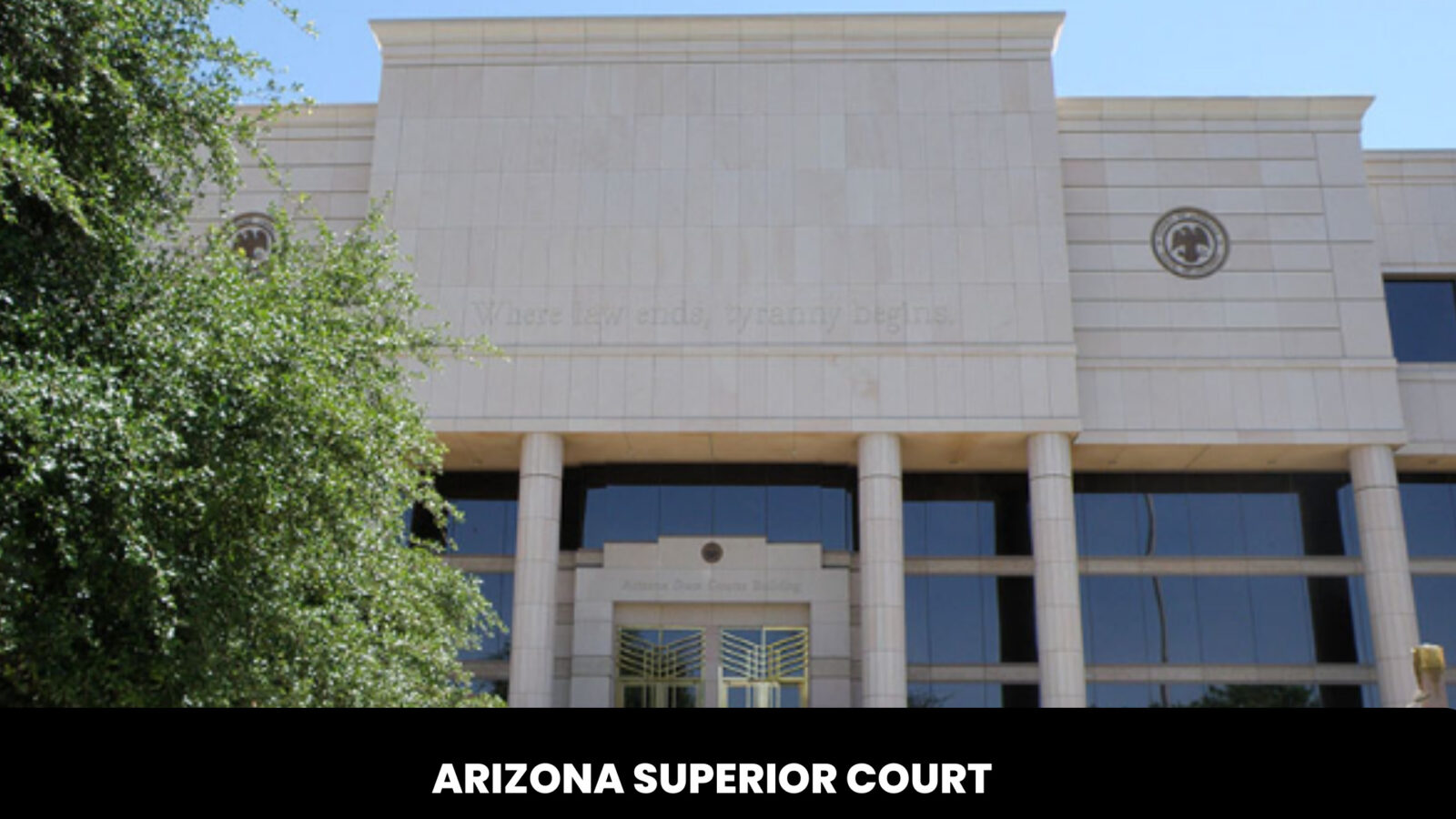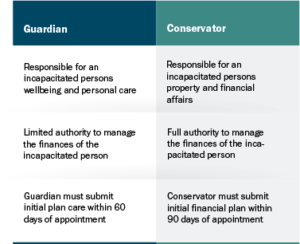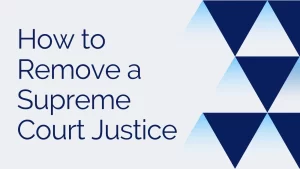Arizona Superior Court
The Arizona Superior Court is the state-level trial court that has general jurisdiction over civil and criminal matters in Arizona. As the court of general jurisdiction, it handles a wide range of cases including civil lawsuits, criminal prosecutions, family law issues, probate matters, and juvenile cases. The Superior Court operates in each of Arizona’s 15 counties and is overseen by the Arizona Supreme Court.
Overview of Arizona Superior Court system
The Arizona Superior Court is part of the unified judicial system in the state. There is a Superior Court in each county, with Superior Court judges elected countywide. However, the Supreme Court has administrative supervision over the Superior Court system. There are approximately 175 Superior Court judges statewide who are assisted by commissioners and other court staff. The Superior Court hears both jury trials and bench trials. Appeals from Superior Court decisions go to the Arizona Court of Appeals.
History of Arizona Superior Court
When Arizona became a state in 1912, its constitution established the Superior Court to replace the prior territorial court system. The new Superior Court had countywide jurisdiction over all civil and criminal case types. In the early years, Superior Court judges traveled around each county by horse and buggy to hold court proceedings. The Superior Court system has expanded over the past century to include dedicated courthouse facilities in each county.
Understanding the Court System in Arizona
Before we dive into the AZ Superior Court, it is essential to have a basic understanding of the court system in Arizona. The Arizona judicial system is made up of several different courts, each with its own jurisdiction and responsibilities. The lowest court in the system is the justice court, which handles small claims, traffic violations, and other minor offenses. The municipal court also handles similar cases, but only within city limits. The superior court is the next level up in the court system, handling more significant cases, and serving as the appellate court for lower court cases.
Courts of Arizona
State Courts of Arizona
- Arizona Supreme Court: The highest court in the state, responsible for reviewing appeals and making final decisions on state law.
- Arizona Court of Appeals (2 divisions): Intermediate appellate courts that hear appeals from decisions made in the Superior Court and some state agencies.
- Superior Court of Arizona (15 counties): The main trial court in Arizona, with divisions in each county. It handles a wide range of cases, including civil, criminal, family, and probate matters.
- Justices of the Peace (County Courts): These are county-level courts that handle minor civil and criminal cases, traffic violations, and small claims matters.
- Arizona Municipal Courts: These are city trial courts that handle cases involving violations of city ordinances, traffic offenses, and other matters within city limits. They are courts of limited jurisdiction.
Federal Courts Located in Arizona:
- United States District Court for the District of Arizona: The federal trial court with jurisdiction over cases arising in the state of Arizona. It handles both civil and criminal federal cases.
These are the major state and federal courts in Arizona, responsible for administering justice at both the state and federal levels.
Jurisdiction of Arizona Superior Court
In the vast legal landscape of the United States, each state possesses its own unique legal system, often defined by its constitution. The Constitution of Arizona plays a pivotal role in shaping the jurisdiction of its Superior Court. In this article, we’ll delve into the intricacies of the Superior Court’s authority and its various divisions. So, let’s embark on this journey to unravel the legal framework of Arizona.
The Superior Court’s Broad Jurisdiction
The Constitution of Arizona, through various provisions, bestows upon the Superior Court a wide-ranging jurisdiction, ensuring it plays a crucial role in the state’s legal proceedings. Here’s a breakdown of the areas where the Superior Court holds sway:
Concurrent Jurisdiction
The Superior Court holds concurrent jurisdiction over cases and proceedings in which exclusive jurisdiction is not vested by law in another court. This means that it can handle a wide array of legal matters that don’t fall under the exclusive jurisdiction of other courts.
Equity Cases
The Superior Court also takes on equity cases that involve title to or possession of real property or the legality of any tax, assessment, toll, or municipal ordinance. These cases often require a nuanced understanding of property rights and municipal regulations.
Cases Involving Property
It steps in for other cases in which the value of property in question is $1,000 or more, exclusive of interest and costs. This shows the court’s responsibility in dealing with substantial disputes related to property.
Felonies and Misdemeanors
The Superior Court is the stage for felonies and misdemeanors not otherwise provided for by law. This includes serious criminal offenses and lesser infractions that don’t have designated courts for their adjudication.
Forcible Entry and Detainer Actions
In the realm of housing, the Superior Court handles forcible entry and detainer actions, commonly known as evictions. These cases involve disputes between landlords and tenants.
Insolvency Proceedings
While bankruptcy cases fall under federal jurisdiction, the Superior Court deals with proceedings in insolvency. This is an essential aspect of handling financial matters within the state.
Nuisances
The Superior Court addresses cases related to nuisances, ensuring the state’s environment and communities are free from detrimental influences.
Probate Matters
Proceedings in probate, including wills, estates, and guardianships, are another area where the Superior Court plays a pivotal role in Arizona’s legal landscape.
Marital Affairs
Dissolution or annulment of marriages, commonly referred to as divorces, are also within the purview of the Superior Court.
Naturalization and Issuance of Documents
Lastly, the Superior Court handles matters related to naturalization and the issuance of appropriate documents for these events, reinforcing its diverse jurisdiction.
The Structure of the Arizona Superior Court
The AZ Superior Court is divided into two main divisions: the civil division and the criminal division. Each of these divisions is further divided into specialized courts that hear specific types of cases. In addition, there are family courts, probate courts, and juvenile courts that have jurisdiction over specific types of cases. Each county has its own superior court system, and the judges are elected to six-year terms.
location and Addresses of Arizona Superior Courts
The specific location and address for Arizona Superior Courts will depend on which county you need to visit or file with. Here are some key addresses for the largest Superior Court systems in Arizona:
Maricopa County Superior Court Locations and Addresses
- Maricopa County Superior Court Administration Offices 201 W. Jefferson Street Phoenix, AZ 85003
- Southeast Facility 222 E. Javelina Avenue Mesa, AZ 85210
- Northeast Facility 18380 N. 40th Street Phoenix, AZ 85032
- Northwest Facility 14264 W. Tierra Buena Lane Surprise, AZ 85374
- Downtown Central Court Building 620 W. Jackson Street Phoenix, AZ 85003
Pima County Superior Court Locations and Addresses
- Pima County Superior Court Main Courthouse 110 W. Congress Street Tucson, AZ 85701
- Pima County Juvenile Court Center 2225 E. Ajo Way Tucson, AZ 85713
- Pima County Superior Court Northwest Facility 3700 W. Ina Road
Tucson, AZ 85741
Other County Superior Court Locations and Addresses
The other 13 Arizona counties also have Superior Court locations in their county seats. Contact information can be found on the county government websites. Some examples include:
- Coconino County Superior Court 200 N. San Francisco Street Flagstaff, AZ 86001
- Pinal County Superior Court 971 N. Jason Lopez Circle Bldg A Florence, AZ 85132
- Yavapai County Superior Court 120 S. Cortez Street Prescott, AZ 86303
Contact Information for Arizona Superior Courts
In addition to physical addresses, each Superior Court provides important phone number contacts for accessing their services, getting information on cases, and more.
Maricopa County Superior Court Phone Numbers
- General Info: 602-372-5375
- Civil Department: 602-506-3360
- Criminal Department: 602-372-7300
- Family Court: 602-372-7200
- Probate: 602-506-3668
- Self-Service Center: 602-506-7353
Pima County Superior Court Phone Numbers
- General Info: 520-724-2000
- Criminal Department: 520-724-4800
- Family Court: 520-724-5555
- Probate: 520-724-3200
- Self-Service Center: 520-724-8456
Phone Numbers for Other County Superior Courts
Contact details for other county Superior Courts in Arizona can be found on official county government websites or by calling the main county phone number. Court staff are available to provide phone assistance for questions on cases, hearings, and legal filings.
Online Resources for Arizona Superior Courts
In addition to courthouse locations and phone contacts, many Arizona Superior Courts provide access to extensive information and services through user-friendly official websites.
Maricopa County Superior Court Website and Online Services
- www.superiorcourt.maricopa.gov
- Online case access, documents, forms, and e-filing services
Pima County Superior Court Website and Online Services
- www.sc.pima.gov
- Court calendars, records, payments, and online dispute resolution
Websites for Other County Superior Courts
Most other counties like Pinal, Yavapai, Coconino, and more operate official websites with similar online services for case details, documents, forms, payments, and more.
Organization of Arizona Superior Court
The Arizona Superior Court system is organized by county across the state’s 15 counties. However, administrative oversight and funding is provided by the state.
Geographic divisions
There is a Superior Court located in the county seat of each Arizona county. In more populated counties like Maricopa and Pima, there are multiple Superior Court locations spread throughout the county. However, each county constitutes one Superior Court district. The number of judges in each county varies based on the population and caseload demands.
Administration and staffing
While Superior Court judges are elected locally in nonpartisan elections, the Arizona Supreme Court provides centralized oversight of the Superior Court system. This includes adopting procedural rules that govern Superior Court operations. Each county’s presiding Superior Court judge works in coordination with the statewide administrative office. Court staffing consists of judges, commissioners, administrators, clerical staff, court reporters, interpreters, probation officers, and other support personnel. Staff size correlates with the county’s population and volume of case filings.
Funding
The Superior Court system is funded by the State of Arizona as well as by the individual counties where each Superior Court sits. In addition to state appropriations, counties contribute funding for court facilities, personnel, and other operational expenses. Grants and fees also provide revenue for specialty court programs and court services.
Divisions of the Superior Court
To efficiently manage its extensive jurisdiction, the Superior Court is divided into fifteen divisions, each corresponding to one of Arizona’s fifteen counties. Officially, these divisions bear the name “Superior Court of the State of Arizona in and for the County of (County).” For instance, in Coconino County, it is officially known as the “Superior Court of the State of Arizona in and for the County of Coconino.” However, informally, variations of these names may be used, depending on the county’s preferences.
The Tax Court Division
In Maricopa County, a separate division of the Superior Court serves as the Arizona Tax Court, possessing statewide jurisdiction over disputes involving the imposition, assessment, or collection of taxes. This specialized court ensures that tax-related matters are handled with the utmost precision and expertise.
Types of Cases Heard in the AZ Superior Court
The Superior Court handles a high volume of cases spanning civil lawsuits, criminal prosecutions, family disputes, juvenile matters, mental health issues, and probate proceedings. Superior Court judges and commissioners adjudicate these cases through bench trials, jury trials, hearings, and other court proceedings.
Civil Cases in the AZ Superior Court
Civil disputes involve private parties and organizations seeking to enforce legal rights and obligations. The Superior Court has jurisdiction over contract disputes, personal injury and wrongful death lawsuits, medical malpractice, product liability, real estate cases, and many other types of civil actions. Civil cases may involve jury trials, although many are resolved through settlements or pre-trial motions.
Criminal Cases in the AZ Superior Court
From traffic infractions to murder charges, the Superior Court handles misdemeanor and felony criminal prosecutions. Criminal cases involve an alleged violation of criminal statutes. The Superior Court oversees arraignments, preliminary hearings, pre-trial motions, plea agreements, jury trials, and sentencing. Criminal cases involve prosecutors representing the state and defense attorneys representing the accused.
Family Court in the AZ Superior Court
The Superior Court’s family law jurisdiction includes divorces, child custody disputes, orders of protection, establishment of paternity, and modification of prior court orders involving family issues. Family law cases are heard by Superior Court judges and commissioners who specialize in resolving domestic disputes. Many family law cases involve self-represented parties.
Probate Court in the AZ Superior Court
The Superior Court handles probate filings involving wills, trusts, guardianships, and estates of deceased persons. Judges oversee validation of wills, appointment of personal representatives, Estate administration, and addressing any disputes that arise. The Superior Court Probate division assists members of the public with estate planning and probate matters.
Juvenile Court in the AZ Superior Court
Juvenile Court is a division within the Superior Court system that handles matters involving minors, such as juvenile delinquency proceedings, dependency and neglect cases, status offenses, and termination of parental rights. The juvenile division maintains separate facilities and procedures for handling cases involving children.
Appeals Court in the AZ Superior Court
The AZ Superior Court is also responsible for hearing appeals from lower courts. The appeals court reviews cases to ensure that they were tried fairly and that the law was applied correctly.
How to Access AZ Superior Court Records
Accessing AZ Superior Court records is relatively simple. Court records are public records, which means that anyone can access them. However, some records are confidential, such as those involving juveniles or sealed cases. You can access court records by visiting the court clerk’s office, searching online, or requesting them by mail.
How to File a Case in the AZ Superior Court
If you need to file a case in the AZ Superior Court, there are several steps you need to follow. You must first determine the appropriate court based on the type of case you have. You will then need to fill out the appropriate forms, pay a filing fee, and serve the defendant with a copy of the complaint. Once the defendant has been served, the case will proceed through the court system.
The Importance of the AZ Superior Court
The AZ Superior Court is essential because it ensures that justice is served in Arizona. The court system provides a fair and impartial forum for resolving disputes, and it plays a critical role in upholding the rule of law. The AZ Superior Court also helps to protect individual rights, provides access to justice for all, and promotes the stability and prosperity of communities throughout Arizona.
The Future of the AZ Superior Court
The AZ Superior Court is likely to continue to evolve and adapt to meet the changing needs of Arizona’s communities. As technology advances and society changes, the court system will need to keep pace to ensure that justice is served. It is essential that the court system continues to remain fair, impartial, and accessible to all Arizonans.
Arizona Supreme Court Case Lookup
If you are looking for information about cases that have been heard by the Arizona Supreme Court, you can use the court’s online case lookup tool. This tool allows you to search for information about cases that have been heard by the Arizona Supreme Court, including civil and criminal appeals.
To use the Arizona Supreme Court’s case lookup tool, simply enter the name of the case or the name of the party involved. The search tool will then provide you with information about the case, including the names of the parties involved, the date the case was heard, and the outcome of the case.
Accessing Arizona Court Records
In addition to accessing information about specific court cases, you can also access Arizona court records. Arizona court records are public records, and they can be accessed by anyone who requests them. To access Arizona court records, you can visit the Arizona Judicial Branch website and follow the instructions for requesting court records.
Arizona Court Records
Arizona court records are public records and are available for public access. Court records include information about court proceedings, such as court filings, motions, and judgments. You can access Arizona court records online through the Arizona Judicial Branch’s website or in person at the court clerk’s office.
To access Arizona court records online, follow these steps:
- Go to the Arizona Judicial Branch’s website at https://www.azcourts.gov/.
- Click on the “Case Search” button on the home page.
- Select the court type you want to search for, such as Superior Court, Justice Court, or Municipal Court.
- Select the court location you want to search for.
- Enter the case number, party name, or attorney bar number to search for a specific case. You can also search by case category, date filed, or date closed.
- Click on the “Search” button.
The search results will provide you with information about the case, including the case number, parties involved, case type, and case status. You can also view case documents and court calendar information online.
Arizona Superior Court Judges
Arizona Superior Court judges are appointed by the Governor and serve a term of six years. Superior Court judges handle a wide range of cases, including civil, criminal, family, juvenile, and probate. To find information about Arizona Superior Court judges
Specialty Courts in Arizona Superior Court
In addition to its general jurisdiction, the Arizona Superior Court system includes several specialty court programs that handle specific case types or use innovative procedures. These include drug courts, mental health courts, and veterans courts.
Drug courts
The Superior Court operates drug court programs in many counties, which provide supervised treatment and community-based rehabilitation for nonviolent offenders with substance abuse disorders. Drug court participants have intensive judicial oversight and receive treatment services from community providers. Graduates can potentially avoid incarceration.
Mental health courts
Mental health courts handle criminal cases involving defendants with mental illness. These courts connect participants to mental health services and provide ongoing psychiatric supervision. The goal is to improve public safety outcomes by addressing the mental health factors involved in criminal behavior.
Veterans courts
Some Superior Court locations operate veterans courts, which provide assistance to current and former military members whose service-related conditions may have led to involvement in the criminal justice system. These courts promote rehabilitation through peer mentoring, trauma counseling, and other veteran-specific services.
Accessing Arizona Superior Court Resources
The Superior Court in each Arizona county provides a range of services and resources to assist the public and legal community. This includes online services, self-help centers, and contact information for court personnel.
Online services
Many Superior Court divisions offer online access to public case records, forms, fee payment options, and other electronic services. Litigants can potentially initiate new cases and monitor existing cases through the court’s website. Different counties may have expanded e-filing and virtual court capabilities.
Self-help resources
Each Superior Court location provides a self-service center with legal information, court forms, and guidance on representing yourself in certain case types. Court staff can explain procedures but do not provide legal advice. Many courts have clinics, classes, and volunteer attorney services focused on assisting self-represented litigants.
Contact information
The public can locate contact details for Superior Court administration, specific court divisions and departments, judges’ chambers, and clerk’s offices on the county court website. Contact information enables accessibility for attorneys and litigants to court personnel managing different case matters.
Conclusion
The AZ Superior Court is an essential part of the Arizona judicial system, providing a fair and impartial forum for resolving disputes and upholding the rule of law. It handles a wide range of cases, including civil, criminal, family, probate, and juvenile cases, and it ensures that justice is served in Arizona. As the state’s communities continue to evolve, the AZ Superior Court will need to adapt to meet changing needs and ensure that justice remains accessible to all.
Frequently Asked Questions (FAQs)
What is the AZ Superior Court?
The AZ Superior Court is the trial court of general jurisdiction in the state of Arizona. It has the power to hear a wide range of cases, including civil, criminal, family, probate, and juvenile cases.
How does the AZ Superior Court work?
The AZ Superior Court is divided into several divisions, including civil, criminal, family, probate, and juvenile courts. Each division has its own set of judges and handles cases related to its area of jurisdiction.
What types of cases does the AZ Superior Court hear?
The AZ Superior Court hears a wide range of cases, including civil cases involving disputes between individuals or entities, criminal cases involving alleged violations of the law, family cases involving divorce, child custody, and child support, probate cases involving the distribution of assets after someone dies, and juvenile cases involving minors.
How do I access AZ Superior Court records?
You can access AZ Superior Court records by visiting the court clerk’s office, searching online, or requesting them by mail. Some records are confidential, such as those involving juveniles or sealed cases.
How do I file a case in the AZ Superior Court?
To file a case in the AZ Superior Court, you must first determine the appropriate court based on the type of case you have. You will then need to fill out the appropriate forms, pay a filing fee, and serve the defendant with a copy of the complaint. Once the defendant has been served, the case will proceed through the court system.
Q: How many Superior Court judges are there in Arizona?
A: Currently there are approximately 175 Superior Court judges serving in Arizona’s 15 counties. The number of judges in each county varies based on population and caseload volume.
Q: What are commissioners in the Superior Court system?
A: Commissioners are judicial officers who hear certain case types and make recommendations to Superior Court judges. They help manage the courts’ caseloads.
Q: Does each county elect its own Superior Court judges?
A: Yes, Superior Court judges are elected through countywide, nonpartisan elections to six-year terms. Vacancies between elections are filled through gubernatorial appointment.
Q: What is the role of the clerk of court for the Superior Court?
A: Clerks of court manage the administrative and financial operations of the Superior Court, maintain court records, handle document intake and processing, administer oaths, and provide customer service.
Q: How can I access public records for Superior Court cases?
A: The Superior Court in each county provides online public access to case records, listings, calendars, and other information. Records can also be searched at courthouse public access terminals or requested from the clerk’s office.





